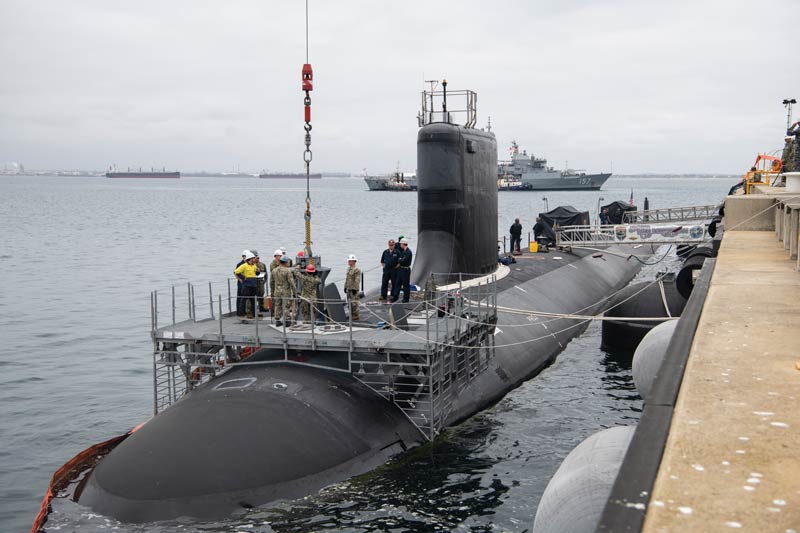
Like its navy, now the largest in the world in terms of sheer number of ships, China is rapidly expanding its influence in the Indo-Pacific. In the face of this, the United Kingdom, the United States and Australia set out to grow their naval presences in the region.
In September 2021, the countries announced a trilateral treaty, awkwardly dubbed AUKUS, aimed at tying the nations closer together and to provide Australia with the technical knowledge to speed up its acquisition of nuclear-powered submarines. Canada, however, was not included in the pact.
Despite its new Indo-Pacific Strategy, Canada remains out of military alliances in the region
When the treaty was first announced, Ottawa dismissed the country’s absence by pointing to its presence in the “Five Eyes” intelligence group that includes the three AUKUS nations and New Zealand. Indeed, lately it seems that every time a new coalition of nations forms to counter growing international threats, Canada insists that the “Five Eyes” is really the only alliance that matters. It isn’t anymore.
For example, in late 2022 the “Quad,” a loose diplomatic coalition of Japan, Australia, India and the U.S.—formally known as the Indo-Pacific Quadrilateral Dialogue—began to move toward a more formal, NATO-like arrangement to counter China. The U.K., with its two new aircraft carriers, will undoubtedly be invited to join, too.
In January 2023, Vice-Admiral Bob Auchterlonie, head of Canadian Joint Operations Command, told The Canadian Press that he’s concerned about Canada’s absence from AUKUS. As he put it, “when you start talking about advanced technology…artificial intelligence, machine learning, quantum…these are conversations we need to be a part of.”
Of course, Ottawa is saying little about its AUKUS absence because…what can it say? Canada clearly has interest in the region given that it has issued its own Indo-Pacific policy paper. Is it possible Canada was excluded from AUKUS and the Quad because it’s a middling defence nation and didn’t want to be a part of either alliance to avoid the embarrassment of its own military pitfalls?
Instead of putting its defence and policy failures front and centre for all to see, the government would rather have Canadians talking about child dental care than the defence of the nation.
Avoidance has been a recurring pattern when it comes to Canadian defence during the past century.
There is no point in rehashing the many failures of Canada’s defence and procurement policy—they’ve been well documented. Nor is it helpful to belabour the delays in rebuilding the country’s navy, acquiring new fighter planes or even whispers about new submarines with under-ice capabilities. Fifteen years ago, Canada had a meaningful presence in Afghanistan during the war against the Taliban. Today, the country doesn’t even contribute a single ship to the NATO naval effort.
Avoidance has been a recurring pattern when it comes to Canadian defence during the past century—to ignore the issue until a crisis arises, then rush to catch up.
Canada’s current defences are in a greater mess than they were in the early 1990s when huge spending cuts were made at the end of the Cold War in an attempt to contain the country’s virtually permanent overall deficit problem.
As senior defence officials, such as Auchterlonie and chief of the defence staff, General Wayne Eyre, become increasingly open about Canada’s lack of defence readiness in these challenging times, and more and more stories about the country’s military weakness are appearing in the press and social media, some Canadians, it seems, are clearly beginning to take notice.
Canada has long struggled with balancing a dream welfare state with strong armed forces. It’s now past time to prioritize the latter.
Advertisement






















